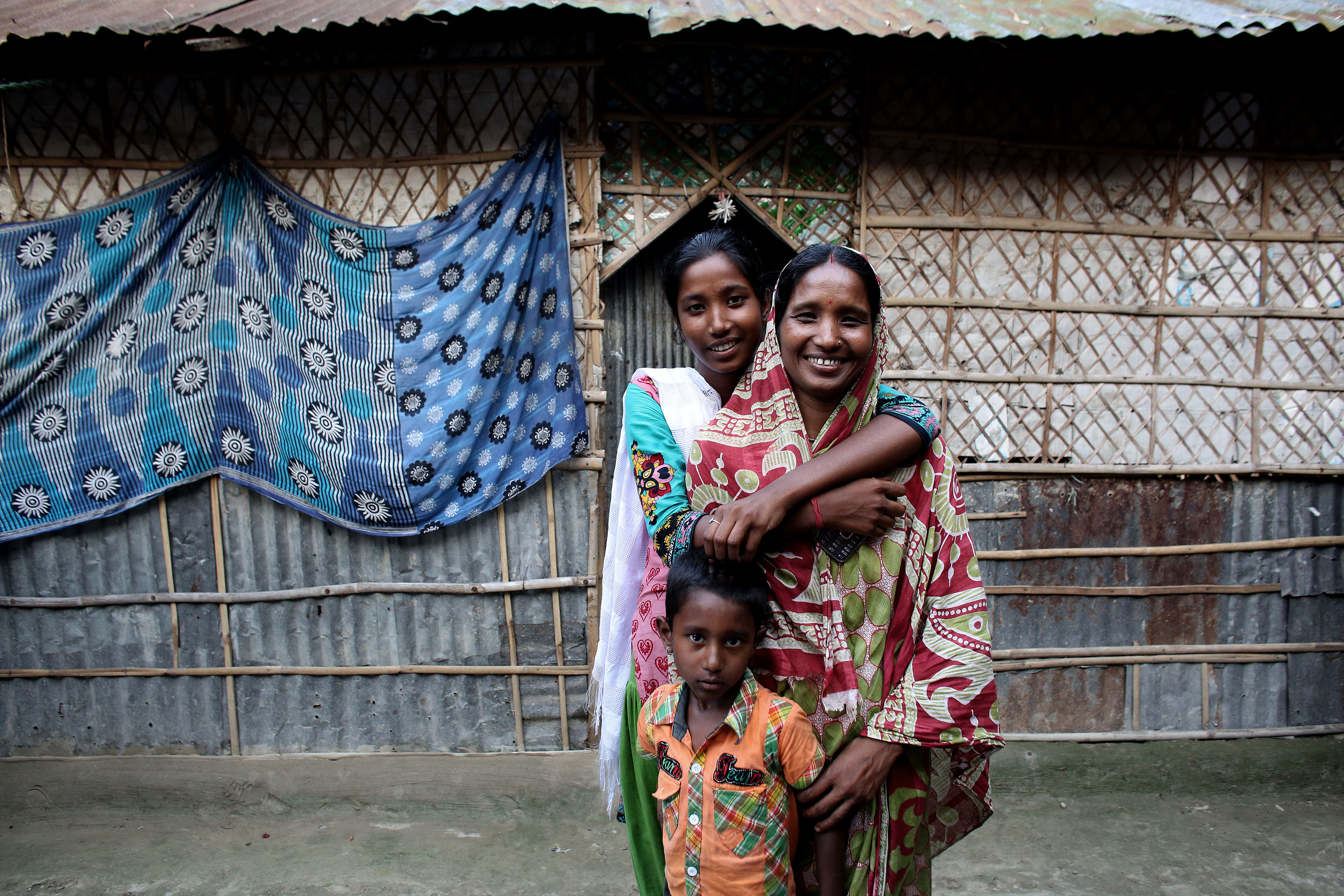CARE’s work in Bangladesh centers on building resilient communities who are able to withstand environmental shocks by implementing humanitarian and resilience programs, health and nutrition initiatives, empowering women and girls, and striving to end extreme poverty in rural settings.
CARE’s work in Bangladesh began in 1974 with relief distribution for school children. In the 1990s, CARE began working with innovative agricultural techniques, health and food security programs. Come the new millennia, CARE focused on extreme poverty, disaster risk reduction, climate-change adaptation and promotion of dignified work.
In Bangladesh’s rapidly changing development landscape, CARE’s work has always focused on aligning with the country’s context. Currently, CARE Bangladesh key focus areas include humanitarian and resilient futures, women and youth empowerment, health and nutrition and private sector engagement.
The world’s largest refugee camp Cox’s Bazar is in Bangladesh. It hosts over 850,000 ethnic Rohingyas who fled from neighbouring Myanmar. CARE has worked in Cox’s Bazar and other refugee camps to provide shelter, water and sanitation/hygiene programs (WASH), vouchers for basic household items, and psychosocial and reproductive health services.
For more information about Myanmar’s refugee crisis and the work CARE Bangladesh is doing to support refugees from Myanmar go here.
Improving the rights of women and girls — Meet Khadija
Khadija Akhtar’s education ended after she obtained a Secondary School Certificate because she was forced into an early marriage. In search of a more secure future for her child, she relocated from Mymensingh to Gazipur and started working at Elite Garments. Proactive and intelligent, she aspired to be a supervisor but lacked focus until she enrolled in CARE’s P.A.C.E. (Personal Advancement and Career Enhancement) training.
Khadija’s self-confidence, communication and leadership abilities increased with every session. She assisted her team, gained knowledge of the clothing process, and quickly attained the position of Supervisor. Khadija now has even higher aspirations — becoming a Line Chief — after being inspired by the training and her personal development. Her experience demonstrates that any destiny can be changed with perseverance and education.
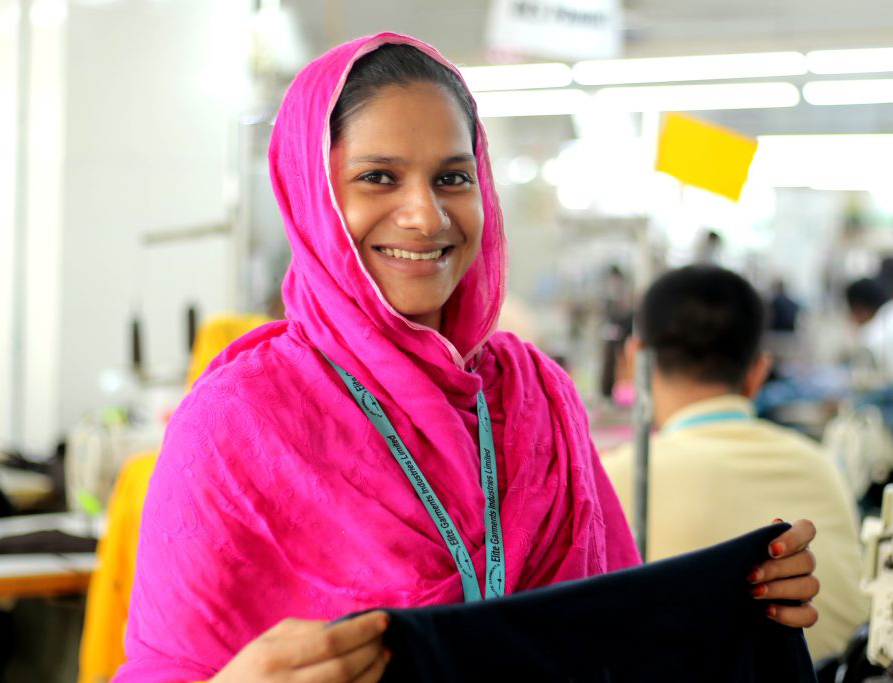
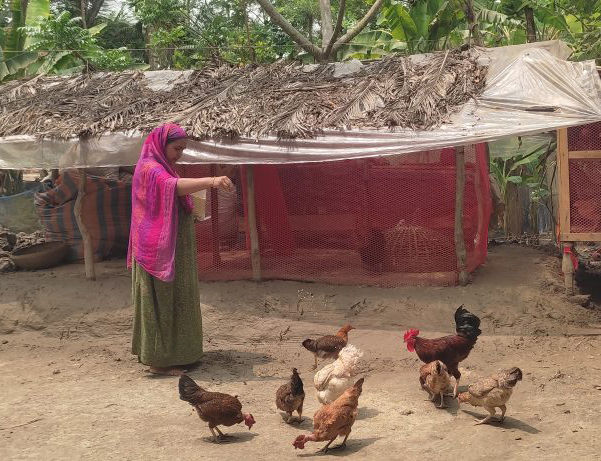
Enhancing lives through livelihood training — Meet Shahanaz
Shahanaz Khanom, once a housewife in Sarankhola Upazila of Bagerhat district, never imagined that her simple poultry hobby could transform her life. Her journey began with support from CARE’s NABAPALLAB project, which provided training, a structured coop, and necessary resources. She learned to rear indigenous chickens, ways to prevent diseases, and manage finances.
With just BDT 5,000, she expanded her flock and earned BDT 7,400 within just three months. Starting from just 12 chickens, she expanded her poultry to 82, and now she sells eggs and chicks regularly. More than an earning, Shahanaz gained confidence. She has become self-sufficient and proudly takes part in family decisions.
Empowering women and girls — Meet Sharmin
In the quiet village of Garuhara, 15-year-old Sharmin Aktar Mimu was on the verge of child marriage. Her dreams dimmed — until she joined the Kishori Club under CARE’s IMAGINE Project. Though her parents resisted, her brother stood by her, helping her attend sessions where she learned about women’s’ rights and the power of saying “no.”
Sharmin’s courage inspired change. She educated her family, and together, they stopped her marriage. Trained in mobile retailing, she launched her own business — selling mobile recharges and SIMs — and now funds her education independently. With support from mentors and a girls’ business network, Sharmin is thriving. She dreams of becoming an entrepreneur, empowering girls like her and ending child marriage in her village.
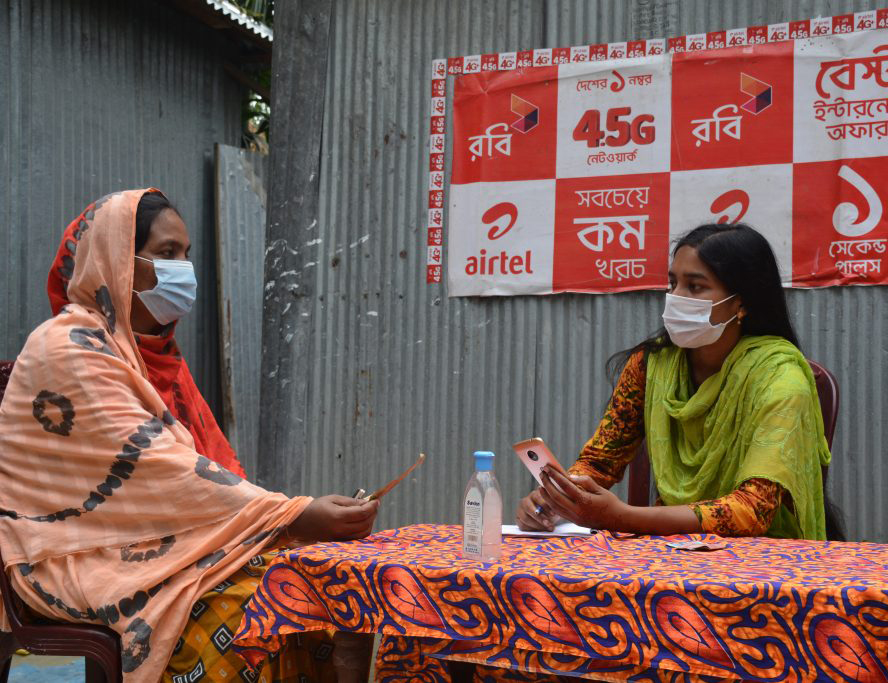
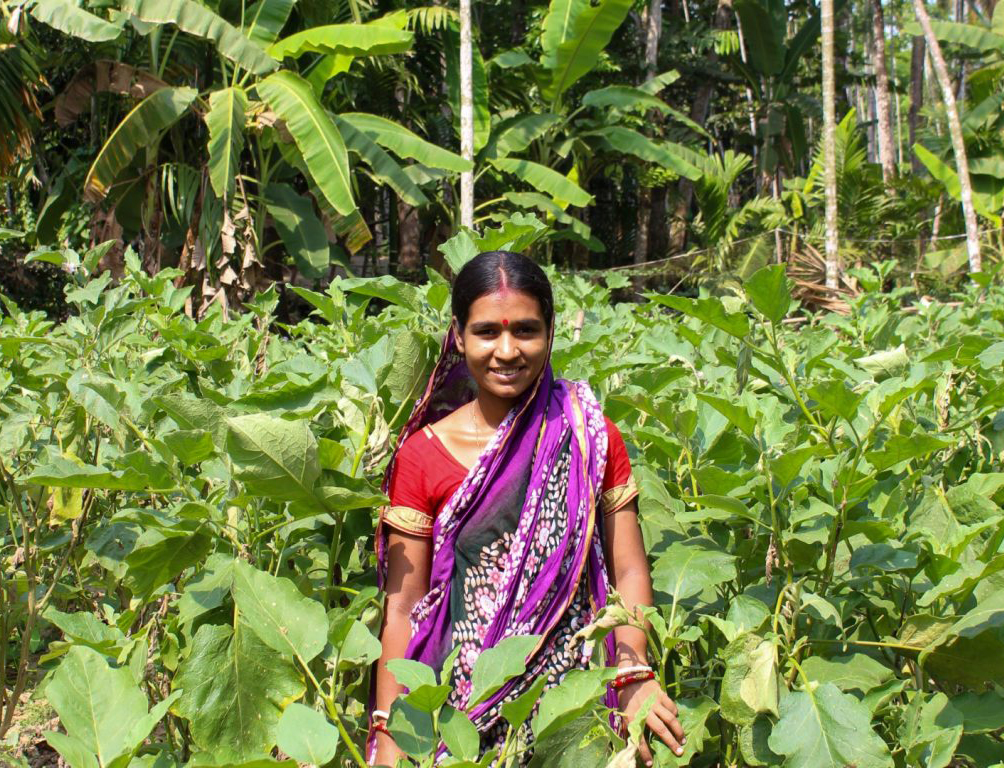
Boosting climate change resilience — Meet Dipali
In the heart of Southwest Bangladesh, saltwater had become a relentless enemy, turning everyday life into a constant battle. For Dipali Rani, a housewife from a village in Bagerhat district, even the simplest tasks — washing, bathing, and finding drinkable water — felt like insurmountable obstacles. Last year, her crops barely survived the harsh saline water, and her heart sank as she watched her hard work wither. Desperate, she carried rainwater from distant ponds, but it was exhausting and futile work.
Then, a ray of hope came when she learned about Climate Smart Agriculture through CARE-supported Community Led Innovation for Climate Risk Mitigation in Bangladesh (CLIMB) project. With newfound knowledge, Dipali transformed her garden, and as the seasons changed, she saw a glimmer of success. Though challenges remain, her determination shines brighter than ever. Dipali now dreams of a future where her garden flourishes, providing for her family — one hopeful harvest at a time.
Donate now
Support our ongoing work to create a more equal world.
Your donation can help end extreme poverty and give people the means to build a better future for themselves in countries like Bangladesh.
For those living in extreme poverty, your support brings education and training, healthcare and clean water, nutritious food, and new ways to earn an income. And in times of crisis, you help us deliver emergency relief. Please donate today.
